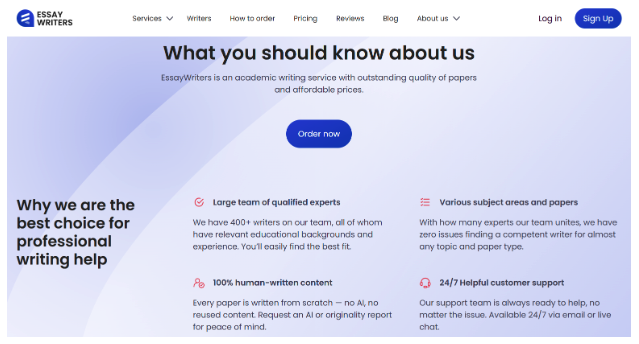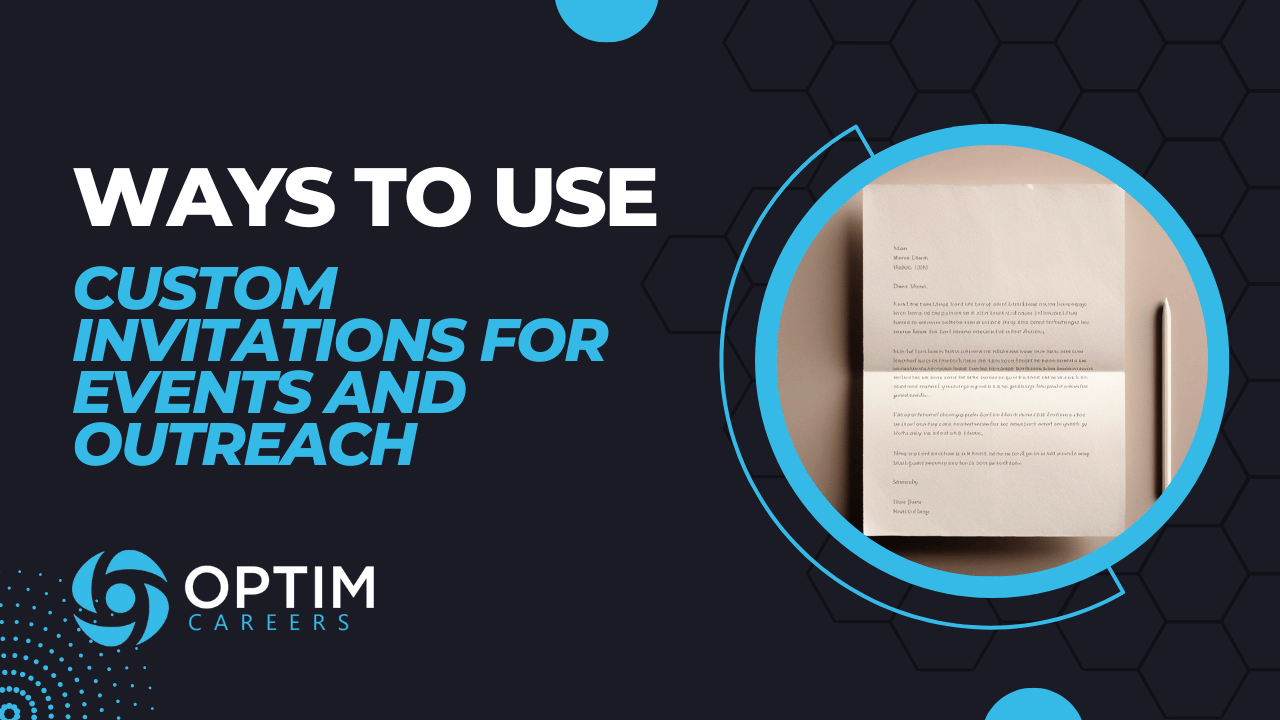Do You Want to Tell Us Anything Else About Yourself
Really good interviewers ask this question frequently. But it also stresses a lot of candidates when they’re not prepared for it.
The problem with most of the advice about answering this is it ignores the reason the question is being asked and treats the answer as if it is something universal that can be rehearsed. If you’ve read other advice articles on this topic, you’ve probably seen things like talk about relevant skills, or tell them how you found the job, or even why you’re excited about the opportunity.
I hate to be the one to tell you, but if you answer like that and it’s not specific to the interview conversation, you’ve essentially failed the opportunity that was presented to you.
In this article, I’ll cover:
When this question is typically asked and when to answer.
Some variations of the question that mean the same thing or could give you an opening to answer the same way.
Why employers ask this question (it’s not a trick).
How to prepare to answer the question ahead of your interview; and
How to answer the question with some examples.
When Is This Question Typically Asked
This question is usually asked toward the end of an interview. It’s one of the many wrap-up interview questions. But that doesn’t mean you have to wait until the end of the interview to add to the conversation, revisit a previous talking point, or clarify something you said earlier. You can do that at any opening.
Variations of “Do You Want To Tell Us Anything Else About Yourself”
This is the most common way interviewers ask the question, however, here are a few others that are related.
Is there anything else we should know about you?
Is there anything else you’d like to add before we wrap up the conversation?
Do you have any questions for me?
All of these are similar and can be an opening to answer in the way I’m about to teach you.
Why Do Employers Ask This Question
Understanding why someone is asking you a question is perhaps the most important part of being able to answer appropriately. If someone asks you this question, don’t be nervous. It’s not because they’re trying to trap you or because you’ve done anything wrong.
In fact, it’s a good sign if you are asked this question. That means this is the type of supervisor who wants to give you the opportunity to be heard and address anything before they shut down the conversation.
If answered correctly, this is an opportunity to show your skills rather than tell about them - a powerful way to stand out amongst your peers. Two skills most employers tell me candidates lack are critical thinking and listening comprehension. This is the perfect time for you to show off how good you are at these.
So why are they asking you this question? I can’t speak for all hiring managers, but I’ve debriefed with hundreds of them over the years and these are usually the reasons.
Reveal Your Takeaways From the Interview
At this point in the interview, you and the interviewer have probably covered quite a bit about yourself, the company, the job, and even the manager themselves. The interviewer is listening for what you took away from the conversation as most important. Did you understand what the two of you spoke about? Did you listen and remember what mattered to them? Do you have good communication skills?
Reveal Your Values & Concerns
What you talk about and the questions you ask in an interview reveal what you care about (or are worried about). They want to know what you really care about when asked an unstructured open-ended question like this one. Do you talk about the team more? Do you talk about a specific function of the job? Do you talk about company culture?
Reveal Your Understanding of the Job and Company
Do you understand the job and what it entails? Does your answer reflect the conversation about the job and the company in an effort to add value? In other words, were you a good listener?
To Give You The Opportunity to Clarify or Add Any Information
Yes, many times it is simply to give you the opportunity to clarify or add new information based on the conversation you and the interviewer just had. And that is all it is. Don’t read too much into it.
How to Prepare For This Question
Prepare to Think
Be prepared for different answers based on how the interview develops and unfolds. Unlike the infamous “Tell me about yourself” question, you can’t prepare an elevator speech ahead of time for this question. What you say will be based on what you discussed and uncovered during the interview.
Prepare to Ask Good Questions
What you do before you are asked this question is very important if you want to answer it well. That means you should be prepared to ask smart questions during your job interview to uncover the company’s needs. If you wait to ask questions after you are asked “Is there anything else we should know about you,” you’re too late.
Research the Job, Manager, and the Company
In order to ask smart questions, you should do your homework. Look up what the company says about themselves online. If they don’t have a website, that too says something about them. Use LinkedIn to look up the interviewer. What is their background? What industries did they work in prior to this job? Review the job description and talk to others who may do the same job.
All of this will give you an idea of what to expect during the interview, but it will also guide your questions. Ask questions to verify the information you obtained and fill in the gaps. The interviewer’s answers to your questions will give you clues about what to talk about when you’re asked “Is there anything else we should know about you?”
Understand Your Background Intimately
Once you’ve done your homework, the hard part begins. Now it’s up to you to review your resume and critically think about your past experiences as they apply to what you uncovered about the job and the company. I encourage people to write these things down because it will help you metabolize and memorize the information.
You need to know yourself well and the details of what you’ve done so that you have ammunition to use when it’s time to answer this question. You don’t know what you’ll need until you get there, so prepare an arsenal of items.
Focus on the Four Key Questions
In my vast experience working with hundreds of hiring managers, there are usually four questions on their minds during an interview. Almost every question they ask will be some variation of these core four. Referencing one of them in your answer based on what you learned in the interview will help you seize the opportunity to give the interviewer what they want.
The key questions most employers are trying to figure out during an interview are the following:
Why are you here?
What skills and experiences do you have that can help us?
What type of person are you?
How are you different from all the rest?
How to Answer, “Is There Anything Else We Should Know About You?”
One of the great things about my job over the past decade is that I get to speak with both the candidate and the hiring manager after an interview to debrief on their thoughts. This has given me a unique perspective into the disconnects between how each felt the interview went. It’s also allowed me to ask hiring managers how they would have preferred someone to answer their questions.
Every hiring manager has different ideas about what someone should say or shouldn’t say, or how they should present the information they share during an interview. But the below items cover what the vast majority of managers have shared with me. If you follow these, you’ll have success most of the time.
Connect the Dots
It may seem natural to jump right into what you want to say but resist. Instead, reference something important that the interviewer and you spoke about to show that you were listening. Connect the dots for them about why you are going to talk about the topic you choose. You’re going to clarify, expand, or add something because they said something was important to them. In other words, talk about something relevant to the position and the pains of the manager.
Focus on One Thing
Decide what you want to talk about. Stay focused on one or two things. Resist the urge to dump too much information on them. There’s a lot of science that shows that people have a hard time metabolizing new information and if you give them too much, they’ll forget everything.
Clarify, Expand, Add, or Reinforce
Use the opportunity to clarify a previous statement you made, expand on a topic you already covered, add new information, or reinforce something you said because you know it’s really important to the other person.
Perhaps over the course of the interview, you realize that they keep talking about a key project (which should signal to you it’s important). In that case, you may want to reinforce or add to the conversation information about similar projects you’ve been a part of.
Perhaps you said something earlier but throughout the interview, you’ve realized that they probably didn’t interpret it the way you expected them to and you can use this time to revisit the topic and clarify your experience.
Whatever it is, decide which one of these four you’re going to do.
Provide Examples If Needed
You don’t always need to show examples or use the STAR methodology to answer this question. You can provide examples if you think it’s important. Examples help people latch on to and understand information. But sometimes, they’re not necessary to answer this question. Sometimes it is as simple as, “I know we’ve spoken at great lengths about upcoming challenge X, and I just want to reiterate those experiences from ABC company we discussed and how I think they’re going to help you get through that situation.”
Show Excitement
If you’re going to answer this question, it’s because you’ve decided at this point that you like these people and the work they need to have you do. Be sure you convey enthusiasm for the position and the information you’re about to share. Excitement alone probably isn’t a great reason to add value to the conversation, but you might as well show it if you want the job.
Gauge Buy-In
After you’ve answered, ask a question to gauge whether you have their buy-in and that you’re both on the same page with the value you’ve shared. I’ll show some examples of this in the later section that pulls all this together in sample situations.
Examples of Answers From Successful Hires
I love examples. I think they help others understand the concepts and give people a starting point to formulate their ideas. Here are some examples from my recent debriefs with candidates and hiring managers where this question was asked and the interviewer viewed the answer favorably.
Example 1: Addressing a Previous Concern
“You had asked me earlier about my frequent job movements every two years and I want to elaborate some more on those companies because not everyone has spent the majority of their career working in private equity. I know we talked about each one being a layoff after a merger where they let go of the entire department, but I also wanted to convey that this is very typical in private equity backed organizations and it’s very different from most other public and privately held orgs.
Private equity companies usually come in and buy a company with the intent to sell it in 3-5 years. In my years of experience, once a sale is completed the new company doesn’t need two people in each role because they already have their own team. Sometimes they’ll keep us on for a while to transfer information and assess if they need additional headcount, but many times, once the post-merger work is done, the entire team is let go and we have to start over at a new company.
That’s one of the things that excites me about your opportunity is that it’s the same work I love and am really good at, but it’s not private equity and I’m looking forward to the possibility of seeing my work results over the long run.
Do you have any colleagues that have come from a private equity background?”
Example 2: Add Additional Information
“Yes, I do. We had spoken quite a bit about some of the larger projects I’ve been a part of at my past two jobs, but I know you mentioned that the majority of your projects are about half the size in scope and I’d like to share a bit about some other similar projects that I’ve been a part of because I’m not just a “big-project” guy.
While at ABC I was involved with a x project which had a budget of around $X and we probably encountered more similar challenges in that project to what you’ve described that your team faces. (Talk about challenges and results).
Having led both small and large-scale projects, there are significant differences in how you manage them and I think it’s important in the long run that whoever you hire understands both.
Would you say that those challenges are fairly unique to the size of projects your team is currently handling?”
Example 3: Add Information Not on Resume or Discussed In Interview
“One thing you mentioned was that a lot of your most successful hires come from certain industry backgrounds and we’re both aware that my work experience is a bit different from some of the profiles you shared with me. However, I think it’s important to share that I’ve been using your products as a consumer for over six years now. That’s not something I typically put on a resume and we haven’t had an opening to bring it up until now.
So while I may not have industry experience on my resume, I may be more knowledgeable about your products than most of my peers who do have industry experience at different companies. One of my favorite things about x product is that it does x better than anything else on the market.
When you described who your ideal customer was, especially X, Y, and Z, you described me. And I can’t think of anyone better to sell your products than someone who is already your target customer with six years of product knowledge first-hand.
Have you ever hired anyone before who was within your target customer profile?”
Example 4: Nothing Additional to Add
“Thanks for asking. I feel that we’ve covered the important topics. You mentioned that the key things you need from this next hire are A, B, and C; and I think I was able to share key pieces of my background that hopefully gave you an idea of how well I’d perform in this role. It was great learning about you, the company, and the job you need me to do. I’m very interested in joining the team. What are the next steps in the process?
Tips and Mistakes to Avoid When Answering This Question
Focus on What Is Important to Them
Remember that they are hiring because they have a problem they can’t solve with their existing team. They may have too much work and need more help. They may need access to different skills than what the team currently possesses. There are many reasons someone needs to hire.
Don’t share things simply because you’re proud of them or you think they make you look good or sound important. Share relevant information to their problems and show that you are qualified to solve those problems.
Focus on Information that Clarifies Your Qualifications, Differentiates You From Others, and Substantiates Claims You Made
If you focus on these three things, clarity, differentiation, and substantiation, you’ll do well.
Don’t Be Vague
If you’re going to share something, be specific with the information you share. Don’t make overarching or vague statements that anyone could say. Make it specific to what you spoke about and your unique experiences.
Be Concise
Don’t ramble. Get to the point. Have a controlling message you want to communicate and concisely communicate that information. It should all come back to one idea. Don’t try to communicate too much information.
Use the 20 to 2 Rule
This is a rule I apply to every interview question and it’s valid for this one too. Simply put, you want to speak for 20 seconds to 2 minutes, no less, no more.
Don’t Talk About Why You Want the Job
I’ve seen some coaches and articles suggest you talk about why you want the job. I’ve sat in the hiring room with hundreds of different companies and managers through my recruitment consulting days and I can tell you don’t do this.
At least don’t do it on its own. If you’re going to talk about why you want the job (aka show excitement about the opportunity), be sure you combine it with why they should want you to have the job. Tie it together with the problem they are facing and how you are qualified to solve that problem.
Take a Beat
You don’t have to fire off a reply right away. It’s ok to take a breath and think about if there is anything else you want to share. Remember that how you answer is just as important as what you say. People will notice if you take a minute to think first or whether you jump right in. There is no right or wrong answer. Different managers are going to want different types of people, but be yourself and don’t be afraid to take a minute if you need to.
Don’t Talk About Weaknesses
If this is a job you’ve decided you want, then it’s your job to sell your qualifications and position yourself as the strongest candidate to help them overcome their challenges. This is not the time to share weaknesses.
Don’t Get Too Personal
Most people aren’t asking you to share your personal story or baggage when they ask this question. If you’re going to communicate personal things, know there is a fine line to walk between what is acceptable and what is not. Learning where this line is involves making mistakes and practice to some extent. If you’re unsure, it’s best to avoid anything overly personal.
Repeating Entire Discussions
It’s ok to reinforce a skill or experience you’ve uncovered as highly relevant to the interviewer. That doesn’t mean you have to go back through the entire story you told earlier in the interview. Simply cover the highlights, remind them of it, and why you think it’s important.
It’s Okay to Say Nothing
Contrary to popular blogs, it is ok to not add anything else. If you’ve had a great interview and you’ve communicated everything you need to and the other person is in alignment with what you’ve communicated, it is ok to say “I think we’ve covered the job and how I believe my background is best suited to help you accomplish X. I don’t think there’s anything else to add at this point.”
Ok, so it’s still something, but it’s not anything else about yourself. It’s ok to make a statement like this. I’ve seen plenty of people get hired and they’ve said something similar.
Don’t Talk About Your Desires
I should say don’t exclusively talk about what you want. Remember they’re hiring because they have a problem that they need your help to solve. Not the other way around. Focusing exclusively on your desires and what you hope to achieve would be like going to a car dealer and the salesperson only talks about how they need to hit quota and they want you to buy this particular car because it will help them achieve that. My guess is that if someone did this, they wouldn’t sell too many cars. Similarly, you won’t land many job offers if you do this in an interview.
Focus on additional skills and experiences that show that you are a great fit for the job.
Don’t Wait For Them to Ask You the Question
Unless the interviewer has expressly asked you to hold all questions and additional statements until the end (which I only see rarely these days, mostly in government and education interviews), you don’t have to wait.
At any time if it becomes apparent to you that you should clarify a previous statement or add something to the conversation do so. It’s ok to say “I wanted to clarify something we talked about earlier if I may.”
How to Answer This Question on a Job Application
I don’t see this question asked on applications often, but it does happen sometimes. At that point, you’re going to have to make a judgment call on whether the juice is worth the squeeze. If it’s a job that you are extremely qualified for and extremely excited about, then maybe you take the additional time to answer the question. If not, don’t feel obligated to answer it.
If all of their questions are answered in your resume and cover letter, there’s no real need to type it into the application field as well. They already have the information. But if you feel the need to add additional information, you can add it here. What I’m trying to say is don’t fret over it. It’s not going to be a deal breaker most of the time.
Before you answer it, read through the job description again in detail (hopefully it’s written well), and look up the company online to see what you can find out about them.
Once you have as much information as you need, you can answer the question. To answer the question, you’ll want to answer this one - “Why do you deserve an interview?” Answer that question when asked if there’s anything else you want to tell them about yourself. Reference the information you found online and in the job listing and follow the same formula of connecting the dots for them and tell them why you’re a solid choice to interview.
Do You Want to Tell Us Anything Else About Yourself Recommended Reading
Answer to “What Do You Do For Fun?” in an Interview
What Would You Do If You Knew You Couldn’t Fail Interview Question
38 Smart Questions to Ask in a Job Interview
Signs You Will Get the Job After an Interview [24 Common Signs of Those Hired]
Cole Sperry has been a recruiter and resume writer since 2015, working with tens of thousands of job seekers, and hundreds of employers. Today Cole runs a botique advisory firm consulting with dozens of recruiting firms and is the Managing Editor at OptimCareers.com.














